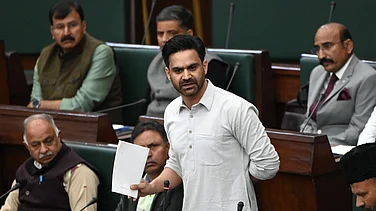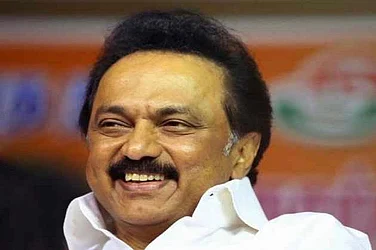Union Home Minister Amit Shah has urged police officials to adopt soft stance on student protests and tribal unrest which could emerge as key challenges in the near future.
Shah has reportedly told over 750 police officials at a conference last week to adopt a different and more “conciliatory” approach to such issues.
Shah chaired the National Security Strategy Conference, organised by the Intelligence Bureau (IB), on August 24 and 25, reported The Hindu.
Shah pointed out that policing is not the only solution for issues such as tribal unrest, the report said.
“The Minister stated that tribals comprise around 9% of the population and [said that] while handling their issues, police should be conciliatory. A broader perspective is required and their issues should be prioritised, specially in areas where it is not bordering on insurgency,” the report quoting an official said.
Shah as per the report also asked the police to be cautious, as the matters and cases related to tribals could be misused by “vested interests” to create trouble in parts of the country.
In the ethnic violence that erupted in Manipur on May 3 between the tribal Kuki-Zo and the Meitei community, more than 150 people were killed and more than 50,000 people have been displaced.
The immediate trigger was the violence that erupted during a tribal solidarity march organised to protest a High Court order directing the Manipur government to consider including the Meitei community in the list of Scheduled Tribes.
In July, Shah had assured a delegation from Nagaland, led by Chief Minister Neiphiu Rio, that tribal areas would be exempt from the purview of a Uniform Civil Code.
In 2019, most parts of northeastern India were exempted from the yet-to-be-implemented Citizenship Amendment Act (CAA). The tribal areas of Assam, Meghalaya, Mizoram or Tripura which are included in the Sixth Schedule to the Constitution and the entire States of Arunachal Pradesh, Nagaland and Manipur are exempt from the provisions of CAA, a law that fast tracks citizenship to undocumented migrants belonging to six non-Muslim communities from Pakistan, Bangladesh and Afghanistan.


























